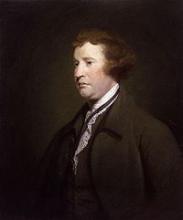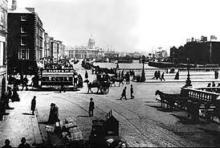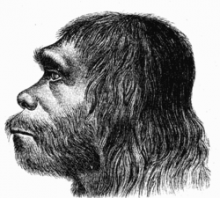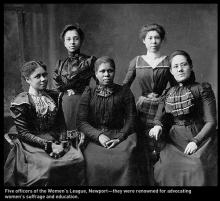Edmund Burke hated the French Revolution
Edmund Burke was an influential Irish writer and politician in 18th century England. Born in 1729, h moved from his native Ireland to Britain where he served as a Whig party member in the House of Commons for many years. He was a hugely influential thinker within his party and during his time period, shaping the Whig party politics for many years. In fact, he split the party into two—the conservative section that he lead called the “Old Whigs” in opposition to a more liberal group he called the “New Whigs.”





